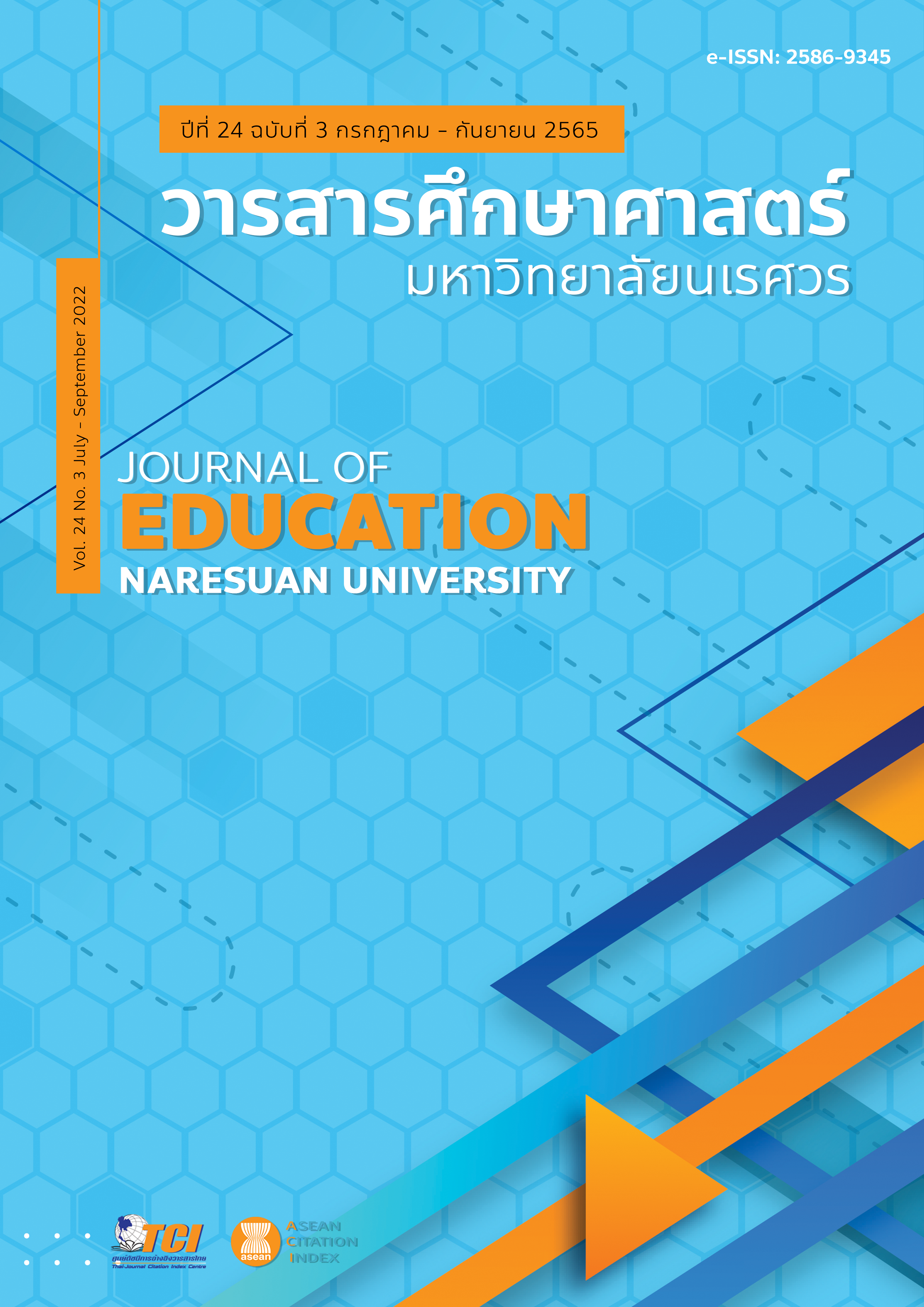SOCIAL CLASS AND PARENT INVOLVEMENT WITH CHILDREN'S EDUCATION: A STUDY OF EDUCATIONAL INEQUALITY IN CHIANG MAI PROVINCE
Main Article Content
Abstract
This article is an empirical study of the ways that parents’ social class impacts their children education.
The aim is to explore how these parents with different class background mobilize their resources to help their children through the education system. It draws on a survey of 50 respondents from three schools: one public school and two private schools in Chiang Mai. The study shows that although most of parents are interested, informed and concerned regarding their children education, their different class backgrounds significantly affect their involvement with children’s education. Middle class families tend to bring up and care for their children's learning in a way called in this study as ‘intensive cultivation’ while lower class and lower middle class families tend to look after and take care of their children’s learning with another method called ‘limited cultivation.’ These differences in patterns and styles of educational involvement help us see and understand the mechanism that social class use to make differences in their children’s opportunities and advantages in school. With education being central to processes of social reproduction, the paper suggests that specific patterns of social class in education may explain this differences in parent involvement with their children’s education and help to reproduce and sustain educational inequality in Chiang Mai.
Article Details

This work is licensed under a Creative Commons Attribution-NonCommercial-NoDerivatives 4.0 International License.
The owner of the article does not copy or violate any of its copyright. If any copyright infringement occurs or prosecution, in any case, the Editorial Board is not involved in all the rights to the owner of the article to be performed.
References
Chin, T., & Phillips, M. (2004). Social reproduction and child-rearing practices: Social class, children’s agency, and the summer activity gap. Sociology of Education, 77, 185–210.
Crossley, N. (2008). Social Class. In Michael Grenfell (ed.), Pierre Bourdieu: Key Concepts (pp. 46-67). UK: ACUMEN.
Devine, F. (2004). Class practices: How parents help their children get good jobs. Cambridge: Cambridge University Press.
Dumais, S. A. (2006). Elementary school students; extracurricular activities: The effects of participation on achievement and teachers’ evaluation. Sociological Spectrum: Mid-South Sociological Association, 26(2), 17-147.
Jenkins, R. (1992). Pierre Bourdieu. London: Routledge.
Lareau, A. (2003). Unequal childhoods: Class, race and family life. Berkeley: University of California Press.
Latthaphiphat, D. (2011). Increase the opportunity for basic education reduce the precious labor of hiring Thai
labor. Retrieved from http: www.moe.go.th/moe/th/news/detail.php?NewsID=22294&Key=hotnews
Nelson, M. K. (2010). Parenting out of control: Anxious parents in uncertain times. New York: New York University Press.
Patthamasiriwat. D. (2011). Investment in children of Thai households. Journal of Economics and Public Policy, 3(5), 1-26.
Reay, D. (1998). Class Work: Mother’s Involvement in Their Children’s Primary Schooling. London: UCL Press.
Reed-Danahay, D. (1996). Education and identity in Rural France: The politics of schooling. Cambridge: Cambridge University Press.
Sugunnasil, K. S. (2020) Parents’ class practices and involvement in their children’s primary schooling (Doctoral Dissertation). Chiang Mai: Chiang Mai University.


